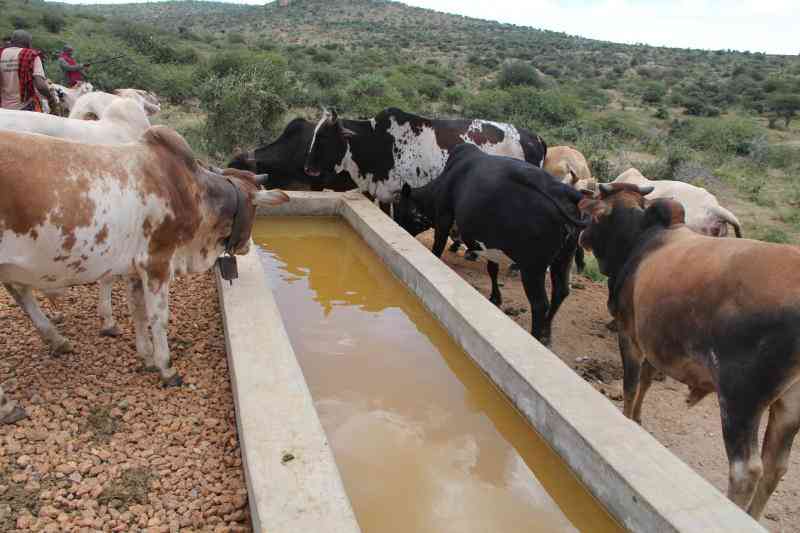×
The Standard e-Paper
Home To Bold Columnists

Livestock drink water at Luruk water project. [Amos Kiarie, Standard]
Dear Dr Othieno, Thank you so much for the weekly training you provide to farmers. I never miss reading your informative articles. I am a dairy farmer with four dairy crosses here in Kajiado. I would greatly appreciate it if you could provide us with some information on water and its impact on animal health, what determines daily water intake, and some precautions that we farmers need to keep in mind. Mary Wambui, Kajiado.